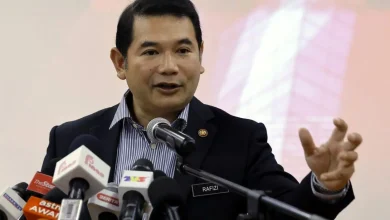
In a decisive move to quell public confusion and misinformation, the Lagos State Government has clarified the scope of its upcoming Single-Use Plastics (SUPs) ban, confirming that everyday essentials like PET bottles, sachet water packs, and plastic carrier bags thicker than 40 microns will not be included when the ban takes effect on July 1, 2025.
Speaking at a press briefing on Tuesday, Commissioner for Environment and Water Resources, Mr. Tokunbo Wahab, addressed concerns sweeping social media and stressed that the ban is laser-focused on the worst offenders.
“Let me be unequivocal: this is a targeted ban—not an all-encompassing plastic prohibition,” Wahab declared. “We are targeting styrofoam food containers, polystyrene cups, plastic cutlery, straws, and ultra-thin carrier bags under 40 microns — plastics that are notoriously harmful due to their short life cycles, near-zero recyclability, and tendency to block drainage systems.”
Unlike broad bans seen elsewhere, Lagos is adopting a nuanced, evidence-driven approach. The decision to exempt PET bottles and sachet water packaging recognizes their crucial role in everyday life—especially for millions without access to safe tap water—and their greater potential for recycling.
“This is not a war on plastics—it’s a war on pollution,” Wahab emphasized. “We are prioritizing materials that cause the greatest environmental damage while building a circular economy to manage plastic waste more effectively.”
Beyond legislation, Lagos has launched the pioneering Plastic Waste Management Fund, a partnership between government, plastic producers, importers, and Producer Responsibility Organisations (PROs). The fund aims to:
Expand recycling infrastructure state-wide; Boost recovery and reuse of post-consumer plastics; Lead public awareness campaigns on responsible disposal; Enforce Extended Producer Responsibility (EPR) among manufacturers.
“This is systemic reform, not just enforcement,” Wahab explained. “We’re fostering a producer-led transition that empowers communities and holds polluters accountable.”
Lagos, Africa’s largest city with over 20 million residents, generates some 13,000 tonnes of waste daily—plastic accounting for up to 20%, according to Lagos Waste Management Authority (LAWMA). This waste clogs drains, worsens flooding, spreads disease, and devastates marine life in the Lagos Lagoon and Atlantic coast.
Expanded polystyrene (EPS), a key ban target, is infamous for its environmental persistence and near-zero recyclability, making it a prime culprit behind plastic pollution.
Lagos is joining Nigerian states such as Ogun, Rivers, and the Federal Capital Territory (FCT) in pioneering targeted single-use plastics restrictions. The move also aligns with the global momentum from the UN Environment Programme’s ongoing Global Plastics Treaty negotiations.
Environmental advocates applaud Lagos’ pragmatic stance.
“This is responsible leadership in a megacity,” said Funmi Adebayo, policy analyst at GreenLagos. “The government is striking a balance—protecting the environment while ensuring vulnerable populations are not unduly burdened.”
With an 18-month transition period launched in January 2024, Lagos plans to intensify public engagement and share clear enforcement guidelines in the coming months to facilitate smooth compliance.
“This is just the start,” Wahab concluded. “Lagos aims to lead Africa in sustainable waste innovation—and every policy step brings us closer to that future.”





